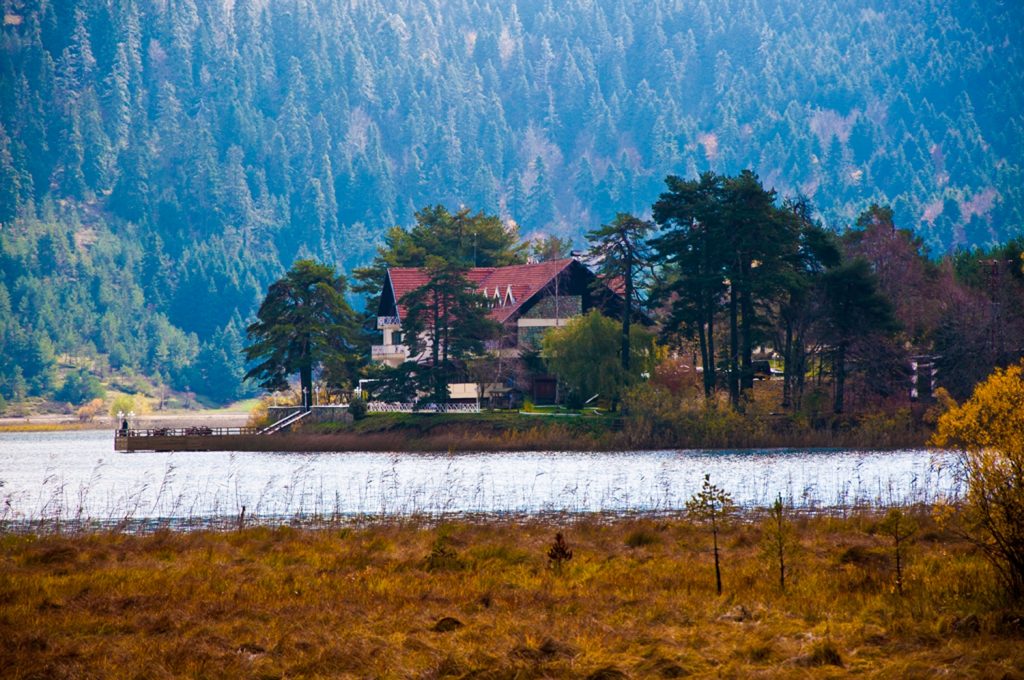Territorial Disputes in Russian Literature Posted by Maria on Mar 9, 2015 in Uncategorized
Some of you might have seen the film “Leviathan” (Левиафа́н) by Andrei Zvyagintsev. This film won several awards and was nominated for an Academy Award.
While there are several themes in the film, a land dispute between a working-class man and the mayor of the city, who wants the man’s property, is what precipitates the conflict. The director admitted that he was partly inspired by the American Marvin Heemeyer, who went on a bulldoze spree as a result of a zoning dispute. However, land disputes feature in several prominent Russian stories.
The Cherry Orchard
The Cherry Orchard (Вишнёвый сад) is a celebrated play by Anton Chekhov (Анто́н Че́хов) telling the story of a crumbling family. At the center of the story is a middle-aged émigrée returning to Russia from Paris, Lyubov Ranevskaya (Любо́вь Ране́вская). Her daughter urges her to come back as their estate is going to be auctioned off to cover their debts (долги́). The only way to save the estate is to cut down (вы́рубить) parts of their beautiful cherry orchard to rent out the cleared plots as summer houses (да́чи).
Ranevskaya and her family lament the loss of their abode but take little action to save it. In the end, a family friend of a lower class, the merchant Lopakhin (Лопа́хин), ends up buying the estate and cutting down the orchard, which is seen by many as a betrayal of the family. This synopsis does not come close to doing the play justice, so please read it for yourself in Russian or English.
Dubrovsky
Dubrovsky (Дубро́вский) is a lesser-known novel by Alexander Pushkin (Алекса́ндр Пу́шкин). The plot concentrates on an unlikely love story between the children of two enemies. When the wealthy nobleman Kirila Troyekurov takes over the land of his humble neighbor Andrey Dubrovsky, his son Vladimir Dubrovsky comes back from university and sets the estate on fire so there is no one to take over.
The young Dubrovsky forms a Robin-Hood-like band that terrorizes the local noblemen. Under the guise of a French teacher, he meets Troyekurov’s daughter and falls in love with her. Troyekurov marries his daughter off to an old nobleman, and Dubrovsky flees abroad.
Pushkin never finished Dubrovsky. According to Wikipedia, this story was considered inferior to his other works and largely inspired by similar Romantic stories of the time.
Iron Will
Nikolay Leskov (Никола́й Леско́в) was a fairly known 19th century Russian writer. His most famous books are The Enchanted Wanderer (Очаро́ванный стра́нник) and The Sealed Angel (Запеча́тленный а́нгел).
Iron Will (Желе́зная во́ля) is a lesser-known work telling the story of a German engineer who comes to Russia and takes pride in following through his endeavors. He buys out a plot of land for his enterprise, but one part of it belongs to a local handyman, who refuses to sell it. In an attempt to push him out, Hugo Pectoralis the protagonist build a fence around the disputed plot. The handyman goes to court, and the court obligates the engineer to pay him 15 rubles per day in damages from lost income. As a result of his stubbornness, the engineer ends up losing more than he otherwise would. This tale is usually interpreted as a juxtaposition of Russian ingenuity with the Western (?) rigidity.
Are there are other examples you can think of?

Build vocabulary, practice pronunciation, and more with Transparent Language Online. Available anytime, anywhere, on any device.




